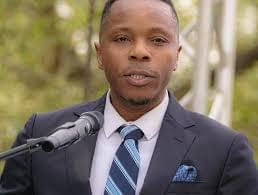Fritong Post has been closely monitoring public reactions on both mainstream and social media platforms following the chief minister’s (photo) unfounded claims against our revered religious institutions in Sierra Leone. According to David Sengeh (Ph.D.), energy theft occurs not just in government ministries, departments, and agencies (MDAs), but also in mosques and churches, as well as private households. While the intention may have been to raise awareness about electricity theft, the minister’s unsubstantiated claims against churches and mosques in particular appears to have sparked public outrage, owing to the essential spiritual attributes of religious institutions and the reverence they are accorded in society.
First and foremost, we agree with the minister that many MDAs are consuming electricity without paying for it. In fact, during last year’s budget discussions, it was revealed that various MDAs and individual government officials owed EDSA NLe421.15 million in unpaid electricity bills. Additionally, it’s a well-known fact that some households, hotels, and other large businesses have been named and shamed when caught stealing electricity. However, the cost implications of such thefts and its impact on EDSA’s ability to fulfil its financial obligations to independent power providers, particularly the Turkish Karadeniz Karpowership, is yet to be fully assessed.
Having addressed that, let’s now delve into the contentious issue of churches and mosques stealing electricity. In legal terms, the principle “he who asserts must prove” should apply in this case, and the chief minister ought to know this fundamental rule. While many have criticised David Sengeh for failing to substantiate his claim with credible evidence, we at Fritong Post surmise that he was merely trying to raise public awareness about the financial implications of electricity theft on the government budget, and although there is no concrete evidence to support his claim, there may be some partial or half truths in what he said.
Moreover, we have observed that there is yet no formal response from the official religious authorities. None of the Christian or Islamic bodies, nor interfaith institutions like the Inter-Religious Council, have issued a public statement reacting to or refuting the chief minister’s direct accusations. It is worth noting that the uproar surrounding this issue is primarily from individuals who do not necessarily have the locus to speak for and on behalf of the institutions so accused of stealing electricity.
Meanwhile, we at Fritong Post urge Minister Sengeh to adopt a more thorough and precise approach in addressing public interest matters, while also encouraging church and mosque goers to exercise some bit of reasonability and begin to question whether our religious bodies do give unto Caesar what rightfully belongs to Caesar.




